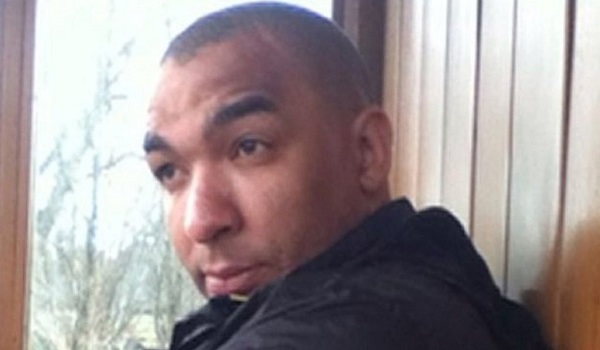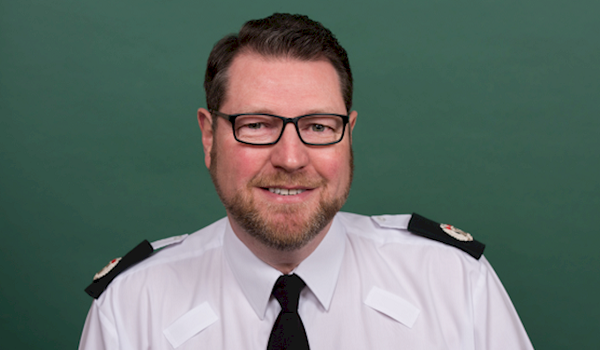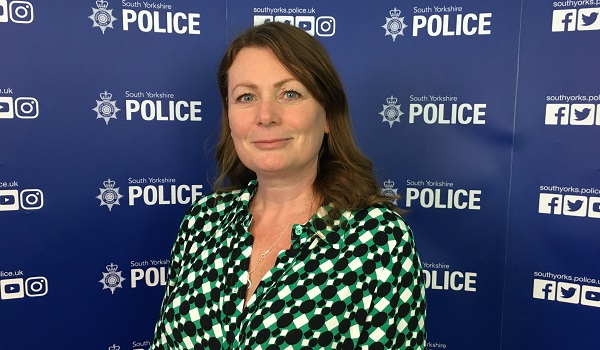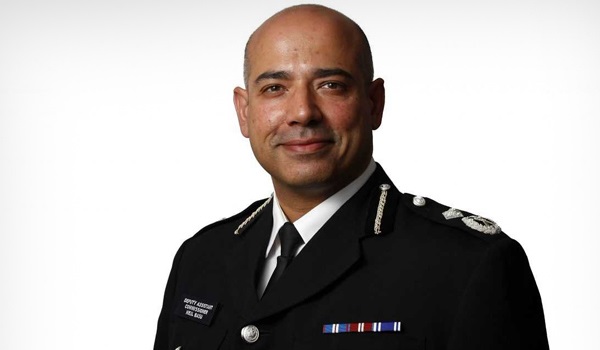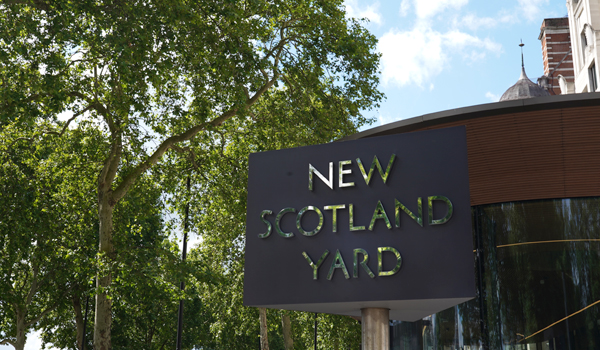Questions over restraint techniques as inquest finds they 'more than minimally' contributed to man’s death
The way in which police restrained a father-of-two “more than minimally contributed to his death”, an inquest jury has found.
Mixed-ethnicity lorry driver Leon Briggs, 39, was detained under the Mental Health Act and taken to Luton police station in handcuffs and leg restraints on November 4, 2013.
He died around two hours later at Luton and Dunstable University Hospital of “amphetamine intoxication in association with prone restraint and prolonged struggling”, with a secondary cause of heart disease, senior coroner Emma Whitting has said.
Returning a conclusion on Friday after nearly three days of deliberations, the jury at the inquest in Milton Keynes found the use of force by officers who restrained him for more than 13 minutes in a “dangerous” face-down position on the concrete “more than minimally contributed to his death”.
The jury of ten also found that although police officers did “reasonably believe” it was appropriate to use force to restrain Mr Briggs while he was suffering a psychotic episode and had taken amphetamines, “inappropriate weight” was used against him “at times”.
Officers’ failure to recognise that Mr Briggs was in a state of medical emergency, and failure to monitor him in the police van and cell, also contributed to his death, the jury said.
Paramedics from the East of England Ambulance Service NHS Trust, who attended calls to Marsh Road where Mr Briggs was restrained, had already admitted prior to the inquest the failure to check Mr Briggs’s vital signs or take him to hospital in an ambulance for medical treatment.
Bedfordshire Police officers attended a call over concerns that Mr Briggs was “behaving unusually”, by darting into shops, talking to himself and wandering into traffic near the junction between Marsh Road and Willow Way in Luton just before 2pm.
After Mr Briggs pushed past acting Sergeant Short and PC Geoff Bennett, they used “excessive force” to restrain him face-down on the concrete in a “very dangerous fashion”, according to Dexter Dias QC, who was representing the Briggs family.
Witnesses said they heard Mr Briggs call out “please help me”, while another described him as “like a child crying out for a toy”.
The officers said they “wanted to do the best [they] could” for Mr Briggs while he was “shouting, struggling, and kicking out”, but Mr Dias accused them of “telling a pack of lies”.
Experienced paramedic Kevin Meade and emergency care assistant Sarah Freeman also attended Marsh Road, but failed to check Mr Briggs’s vital signs, which could have indicated that he needed to go to hospital rather than custody.
Ms Freeman described carrying out a “visual assessment” because Mr Briggs being clothed, struggling and handcuffed made it “difficult” to carry out proper pulse and temperature checks.
Lewis Andrews, clinical general manager at East of England Ambulance Service NHS Trust, agreed with Mr Dias that the medics “did not even speak to Leon” or “offer medical advice to police” when they saw he was being restrained in a “dangerous” way.
But Ms Freeman agreed with Bedfordshire Police’s lawyer John Beggs QC that officers were “doing their best” with Mr Briggs and did not “deliberately try to hurt” him.
PC Peter Baron, who assisted the officers as Mr Briggs was restrained for more than 13 minutes, admitted the way they moved him to a police van “wasn’t ideal”.
PC Daniel Sullivan, who teaches personal safety and physical training for Bedfordshire Police, said some of the police who carried Mr Briggs to the van had no training to do it correctly, and his treatment breached national guidelines.
The jury has been shown CCTV footage of the moment Mr Briggs arrived at the police station repeatedly shouting “no” and screaming.
Members of Mr Briggs’s family, who attended the court every day, left the room while the CCTV was shown because they found it “distressing”.
Several officers carried Mr Briggs into a cell before he lay still, face-down and silent for a few minutes before officers called out his name and asked “are you alright?”, while one referred to him “sweating”, before attempting to resuscitate him.
Sweating should have been a “key indicator” that Mr Briggs was suffering from acute behavioural disturbance (ABD), the inquest has previously heard.
The inquest heard that PC Baron, who was at Luton station, went to wash his hands instead of immediately checking on Mr Briggs.
Mr Dias accused officers of ignoring the “potentially life-threatening” signs of positional asphyxia, a condition in which a person cannot breathe adequately.
He said Mr Briggs was having an “acute mental health crisis” and should have been treated as a “medical emergency”, instead of being left alone in the cell.
An ambulance arrived later on to take Mr Briggs to Luton and Dunstable University Hospital, where he died just after 4pm.
The secretary of Bedfordshire Police Federation, Emma Carter, disagreed that Leon Briggs was restrained in a “dangerous way” by the force’s officers in 2013, despite a jury finding the prone position they held him in “more than minimally contributed to his death”.
Speaking outside the court in Milton Keynes, Ms Carter said the restraint was “in accordance with their training” and that Mr Briggs, who had taken amphetamines before he was detained, was “not compliant”.
Ms Carter said “the officers reacted to Leon’s actions, so I would disagree, I wouldn’t say it was dangerous” adding that they “did their very best” to deal with “a very tragic incident”.
When asked if Bedfordshire Police officers would keep restraining people in the same way they did Mr Briggs, Ms Carter said this “was a matter for national police chiefs”.


